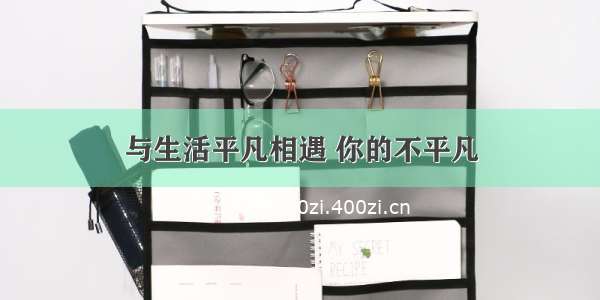
1
Unit1 Festivals around the world
【重点词汇、短语】
1.take place 发生2.religious 宗教的3.in memory of 纪念4.belief 信任,信心,信仰5.dress up 盛装,打扮6.trick 诡计,窍门7.play a trick on 搞恶作剧,诈骗8.gain 获得9.gather 搜集,集合10.award 奖品,授予11.admire 赞美,钦佩12.look forward to 期望,盼望13.day and night 日夜14.as though 好像15.have fun with 玩的开心16.permission 许可,允许17.turn up 出现,到场18.keep one’s word 守信用19.hold one’s breath 屏息20.apologize道歉21.obvious 显然的22.set off 出发,动身,使爆炸
【重点句型】
1.Please make sure when and where the accidenttook place.请查清楚事故是何时何地发生的。2.Some festival are held tohonourthe dead, orsatisfyandpleasethe ancestors,whocould returneitherto helportodo harm.还有一些节日,是为了纪念死者、满足或取悦祖先,因为(祖先们)有可能回到世上帮助他们,也有可能带来危害。3.In Japan the festival is called Obon,whenpeople should go to clean the graves and light incensein memory oftheir ancestors.(非限制性定语从句)
在日本,这个节叫孟兰盆节,在这个节日里,人们要上坟、扫墓、烧香,以缅怀祖先。4.Theydress upand try tofrightenpeople.
他们乔装打扮去吓唬别人。5. If they are not given anything, the childrenmightplay a trick.如果你什么也不打发给孩子,他们可能会捉弄别人。6. In India there is a national festival on October 2 tohonourMahatma Gandhi, theleaderwhohelpedgainIndia'sindependencefromBritain.在印度,10月2日是纪念马哈特马.甘地的全国性节日,他是帮助印度脱离英国而独立的领袖。
7. The mostenergeticand important festivals are the ones thatlook forward tothe end of winter and to the coming of spring.最富生气而又最重要的节日,就是告别冬天、迎来春天的日子。8. The countryis covered withcherry tree flowersso thatit looksas thoughit might be covered with pink snow.整个国度处处都是樱花盛开,看上去就像罩上了一层粉红色的雪。
【语法总结】
情态动词
定义:情态动词是一种本身有一定的词义、但要与动词原形及其被动语态一起使用,给谓语动词增添情态色彩,表示说话人对有关行为或事物的态度和看法,认为其可能、应该或必要等。情态动词数量不多,主要有下列:
can (could), may (might), must, need, ought to, dare (dared), shall (should), will (would),have (to) ,had better.
一. can和could的用法
1. 表示能力或客观可能性,还可以表示请求和允许。注意:①could也可表示请求,语气委婉,主要用于疑问句,不可用于肯定句,答语应用can。②can表示能力时,还可用be able to代替。2. 表示惊异、怀疑、不相信的态度。(主要用在否定句、疑问句或惊叹句中)3. “can(could) + have + 过去分词”的疑问或否定形式表示对过去发生的行为怀疑或不肯定。4. 用在疑问句及否定句中,表示惊讶,不相信等。5. cannot…too...表示“无论怎样……也不过分”
二. may和might的用法
1. 表示许可。表示请求、允许时,might比may的语气更委婉一些,否定回答时(口语中常用) no , you can’t . or , yes, please 用mustn’t表示“不可以”、“禁止”、“阻止”之意(具有强烈禁止的意思)。用May I…征询对方许可在文体上比较正式,在口气上比较客气。在日常口语中,用Can I ... 征询对方意见在现代口语中更为常见。2. 用于祈使句中表示祝愿。3. 表示推测、可能(疑问句不能用于此意)。4. “may(might) + have + 过去分词”表示对过去发生的行为的推测。
三. must和have to的用法
1. 表示必须、必要。(must表示主观多一些而have to则表示客观多一些)回答must引出的问句时,如果是否定的回答,不能用mustn’t,而要用needn’t或don’t have to。2.“must be + 表语”的结构表示推测,它的否定或疑问式用can代替must。3. “must + have + 过去分词”的结构常用在肯定句中,表示对过去发生的行为的推测。它的否定或疑问式用can代替must。4. have to的含义与must相似,两者往往可以互换使用,但have to有各种形式,随have的变化而定。注意:have to也可拼做have got to。
四. dare和need的用法
1. need表示“需要”,作情态动词时,仅用于否定句或疑问句中,在肯定句中一般用must, have to, ought to,或should代替。注意:needn't + 不定式的完成式“表示本来不必做某事而实际上做了某事”2. dare作情态动词时,主要用于疑问句、否定句和条件状语从句中,一般不用在肯定句中。3. dare和need常用作实义动词,有时态、人称和数的变化,所不同的是,作实义动词时,在肯定句中,dare后面通常接带to的不定式,在否定和疑问句中,dare后面可接带to或不带to的不定式。
五. shall和should的用法
1. shall的用法:①shall用于第一人称,表示征求对方的意愿。②shall用于第一、第三人称疑问句中,表示说话人征求对方的意见或向对方请示。③shall用于第二、第三人称,表示说话人给对方命令、警告、允诺或威胁。2. should的用法:①should表示劝告、建议、命令,其同义词是ought to;在疑问句中,通常用should代替ought to。②Why(or How) + should结构表示说话人对某事不能理解,感到意外、惊异等意思。意为“竟会”。③“should + have + 过去分词”结构一般表示义务,表示应该做到而实际上没有做到,并包含一种埋怨、责备的口气。
六. will和would的用法
1. 表示请求、建议等,would比will委婉客气。2. 表示意志、愿望和决心。3. 用“will be”和“will(would) + have + 过去分词”的结构表示推测,主要用于第二、三人称。前者表示对目前情况的推测,后者表示对已经完成的动作或事态的推测。4. would可表示过去反复发生的动作或某种倾向。5. 表料想或猜想。
七. ought to的用法
1. ought to表示应该。2. 表示推测。注意与must表示推测时的区别:He must be at home by now. (断定他已到家)He ought to be home by now. (不十分肯定)This is where the oil must be. (比较直率)This is where the oil ought to be. (比较含蓄)3. “ought to + have + 过去分词”表示过去应做某事而实际未做。ought和should的区别:1.ought语气略强。2.should较常用。3.ought在美国英语中用的很少,而should却相当常用。4.ought属正式用语。
八. used to,had better,would rather的用法
1. used to表示过去的习惯动作或状态,现在已不存在,在间接引语中,其形式可不变。如:He told us he used to play football when he was young.2. had better意为“最好”,后接不带to的不定式。
3. would rather意为“宁愿”,表选择,后接不带to的不定式。
2
Unit2 Healthy eating
【重点词汇、短语】
1.diet 日常饮食,节食2.balance 平衡,天平3.fry 油炸4.ought to 应该5.lose weigh 减肥6.raw 生的,未加工的7.get away with 被放过,(做坏事)不受惩罚8.tell a lie 说谎9.win…back 赢回10.strength强项,长处,力量11.consult 咨询,请教12.earn one’s living 谋生13.debt 债14.in debt 欠债15.limit 限制,界限16.benefit 利益bine 联合,结合18.cut down 削减,删节19.before long 不久以后20.put on weight 增加体重
【重点句型】
1. The food you eat helps you growin different ways.你吃的食物能以不同的方式帮你成长。2.Standing on topof the tall building,wecould see the whole city.站在高楼的顶部,我们能看到整个城市。3. Which foodcontainsmore sugar?哪一种食物含有更多的糖?4. Whatcould havehappened?可能发生了什么事?5. Something terrible must have happened if Maochang was not coming to eat with him as he always did.要是茂昌不像往常那样和他一起吃饭,那问题一定严重了。6.CuriositydroveWang Pengwei inside.王鹏伟受到好奇心的驱使,走了进去。7. Wewere surprised atfinding the house empty.我们发现这个房子空无一人,感到惊讶。8. Theyhad me repeatthe message.他们让我把口信又重说了一遍。9. I have a lot of work to do.我有很多工作要做。10. He did notlook forward tobeing in debtbecause his restaurant was no longer popular.他可不希望由于他的餐馆不再受欢迎而负债。
【语法总结】情态动词(详见第一单元语法总结)
3
Unit3 The Miliion Pound Bank Note
【重点词汇、短语】
1.bring up 抚养2.scene 现场,景色3.permit 许可,通行证4.go ahead 前进5.by accident 偶然6.stare 凝视,盯着看7.stare at 盯着看8.spot 发现,认出,斑点,污点9.account 说明,总计有,账目,10.account for 导致,做出解释11.seek 探索,寻求12.contrary 反面,对立面13.on the contrary 与此相反14.take a chance 冒险15.in rags 衣衫褴褛16.indeed 真正地17.as for 关于,至于
【重点句型】
1. Have you evermade a betwith your friends?你曾和你的朋友们打过赌吗?2. Did he help you by accident or on purose?他是碰巧还是有意帮你?3. Iwonder, Mr Smith, if/whether you’dmind us moving your flowers outdoors.史密斯先生,我不知道你是否介意我们把你的花移到室外去。4. You’re about tohear themost incredible tale.你们马上就要听到一个最难以置信的故事。5.Permitmetosay a few words.请允许我说几句话。6. After the rain, wewent ahead withour work.雨停之后,我们继续工作。7. Andit wasthe shipthatbrought you to England.正是那艘船把你带到了英国。8. I earned mypassageby working asanunpaidhand,whichaccounted formy appearance.我是作为一个不拿工资的帮手赚来我的船费,这就是我为什么会衣冠不整的原因了。9. Dickfound himself walking in the direction of the church.迪克发现自己不知不觉朝教堂方向走去。10.Even if/thoughhe is very nice, I don’t trust him.即使他很好,我也不太相信他。
【语法总结】
名词性从句
在句子中起名词作用的句子叫名词性从句 (Noun Clauses)。名词性从句的功能相当于名词词组, 它在复合句中能担任主语、宾语、表语、同位语等,因此根据它在句中不同的语法功能,名词性从句又可分别称为主语从句、宾语从句、表语从句和同位语从句。
一. 名词性从句的连接词
引导名词性从句的连接词可分为四类:1. that(无含义,不充当成分)2. whether, if(有“是否”的含义,但不充当成分)3. 连接代词:what, whatever, who, whoever, whom, whomever,whose, which,whichever.(在从句中做主语、宾语、表语和定语)连接副词:when, whenever,where,wherever, how, however,why(在从句中做状语)4. as if,as though,because(不充当成分,在名词性从句中只引导表语从句)
二. 四类名词性从句语法要点
1.主语从句在整个句子中用作主语的从句叫主语从句。
What he wants to tell us is not clear.
他要跟我们说什么,还不清楚。
It is known to us how he became a writer.我们都知道他是如何成为一名作家的。
Where the English evening will be held has not yet been announced.英语晚会将在哪里举行,还没有宣布。
it作形式主语:有时为避免句子头重脚轻,常用形式主语it代替主语从句作形式主语放于句首,而把主语从句置于句末。It is clear that he is innocent in the accident.
很明显,他在这场事故中是无辜的。
2. 宾语从句
在整个句子中用作宾语的从句叫宾语从句。
He has told me that he will go to Shanghai tomorrow.
他已经告诉我他明天要去上海。
We must never think (that) we are good in everything while others are good in nothing.我们决不能认为自己什么都好,别人什么都不好。
it作形式宾语:在“主语+谓语+宾语+宾补”的句型中,如果宾语是从句的形式,则必须用it做形式宾语,把真正的宾语即宾语从句置于句末。
We found it impossible that the so much work will be finidhed in one day.我们发现一天之内完成这项工作不可能。
3. 表语从句
在整个句子中用作表语的从句叫表语从句。
The fact is that we have lost the game.事实是我们已经输了这场比赛。
That is why he didn’t come to the meeting.那就是他为什么不到会的原因。
It looks as if it is going to rain.看上去天要下雨了。
This is because he has been working hard these days.这是因为这些天他一直工作很努力。
注意:because,as if 和 as though在名词性从句中只能引导表语从句。
4. 同位语从句
在整个句子中用作同位语的从句叫同位语从句。
同位语的含义:在句子中,如果有两个名词,并且后一个名词是对前一个名词的解释说明,它们两个指的是同一个人或同一个物,那么,后面的名词就叫前面名词的同位语。例如:This is my friend, Tom.(Tom是my friend 的同位语。)
可用于同位语从句的名词有advice、demand、doubt、fact、hope、idea、information、message、news、order、problem、promise、question、request、suggestion、truth、wish、word等抽象名词。
The news that we won the game is exciting.我们赢得这场比赛的消息令人激动。
I have no idea when he will come back home.我不知道他什么时候回来。
The thought came to him that Mary had probably fallen ill. 他想到可能玛丽生病了。
同位语从句和定语从句的区别:
that作为关系代词,可以引导定语从句,充当句子成分,在从句中作宾语时可以省略;that引导同位语从句时,起连词的作用,没有实际意义,不充当句子成分,一般不能省略。
试比较下面两个例句:I had no idea that you were here.我不知道你在这里。(that无含义,thatyou were here 指的就是idea,所以是同位语从句,不能省略that)
Have you got the idea(that)this book gives you?这本书给了你想法吗?(that指的是the idea,that引导定语从句,作宾语,可以省略)
三. 连接词that在名词性从句中可以省略的三种情况
1.it 做形式主语,that引导主语从句时It is said (that) he has been studying abroad.据说他一直在国外学习。
2.动词宾语从句中I think(that) you have much to improve in English.我认为你的英语需要提高的有很多。
3.形容词宾语从句中I am afraid (that) I will be late.恐怕我要迟到了。
4
Unit4 Astronomy:the science of the stars
【重点词汇、短语】
1.system 系统,体系2.theory 学说,理论3.violent 猛烈的,激烈的,4.in time 及时,终于5.unlike 不同,不像6.harmful 有害的7.lay eggs 下蛋8.exist 存在,生存9.give birth to 产生,分娩10.in one’s turn 轮到某人11.prevent from 阻止12.puzzle 谜,难题/使迷惑13.pull 拉,牵引力14.cheer up 感到振奋15.now that 既然16.break out 突发,爆发17.watch out 密切注视
【重点句型】
1. We usuallythink ofscience subjectsasphysics, chemistry, biology and mathematics.通常我们认为科学学科为物理、化学、生物、和数学。2.Whenaretheyto handin their plan?他们的计划什么时候交上来。3.Whetherwe help himor not, he will fail.不论我们帮助他与否,他都将失败。4.It exploded loudly with fire and rock,whichwerein timeto produce the water vapour, carbon dioxide, oxygen, nitrogen and other gases,whichwere tomake the earth’s atmosphere.它(地球)巨大的爆炸喷出了烈火与岩石,最终产生了水蒸气、二氧化碳、氧、氮和其他多种气体,从而形成了地球的大气层。5.Itwas quite different fromwhat I expected.它和我原来想的很不一样。6. Thismade it possible for us to learnEnglish better.这使得我们有可能把英语学得更好。7. Scientist believe thattaking carbon dioxide from the atmosphereandfilling the air with oxygenhelped life to develop.科学家认为,从大气中吸取二氧化碳,并向空气中释放氧气,有助于生命的发展。8. He has experienceas well asknowledge.他既有学识又有经验。9. They are putting too much carbon dioxide into theatmosphere,whichpreventsheatfrom escapingfrom the earth into space.他们把太多的二氧化碳释放到大气层中,这使得热量不能从地球上散发到太空中。10.Whether life will continute on the earth for millions of years willdepend onwhether this problem can be solved.生命是否会在地球上延续几百万年要取决于这个问题能否得到解决。
【语法归纳】名词性从句(详见第三单元语法总结)
5
Unit5 Canada—“The Ture North”
【重点词汇、短语】
1.rather than 与其,不愿2.chat 聊天,闲聊3.surround 包围,围绕4.measure 测量,衡量,判定5.settle down 定居,平静下来6.manage to do 设法做7.catch sight of 看见,瞥见8.have a gift for 对…有天赋9.within 在…之内,10.border 边界,国界,边沿,与…接壤11.mix 混合,调配12.mixture 混合物13.confirm 证实,证明,批准14.distance 距离,远方15.in the distance 在远处16.nearby 在附近17.tradition 传统,习俗18.impress 使印象深刻
【重点句型】
1.Canada isthe second largestcountry in the world.加拿大是世界上第二大的国家。2.Success iswithinour grasp now.现在我们成功在望了。3. I’m feelingslightlybetter today.我今天感到好一点了。4. Iprefer to playfootballrather thanstay at home.我宁愿踢足球而不愿呆在家里。5. He gave me money as well as advice.(as well as 和;同;也)他给我忠告并且给我钱。6. These books are mine;the rest areyours.这些书是我的,其他的都是你的。7. I asked her a question but sheremainedsilent.(remaine是连系动词,意思是“保持,仍然是”)我问了她一个问题,但她保持沉默。8. Many people think it isthe mostbeautiful city in Canada, as it issurroundedby mountainsonthe north and east and the Pacific Oceanonthe west.许多人都认为温哥华是加拿大最美丽的城市,因为来自它的北面和东面都被大山包围,而西面濒临太平洋。9. Many of themhave a gift forworking with animals and they can winthousands ofdollars in prizes.他们中的许多人拥有与兽共舞的天分,因而能赢得数千美元的奖金。10. You canhave a view ofParis from the Eiffel Tower.从埃菲尔铁塔上你可以看到巴黎全景。11. Around noon they arrived in Toronto,the most wealthy and biggest city in Canada.大约中午时分她们到了多伦多—加拿大最富有、最大的城市。12. I accompanied himas far asthe bus stop.我陪他一直走到公共汽车站。
















